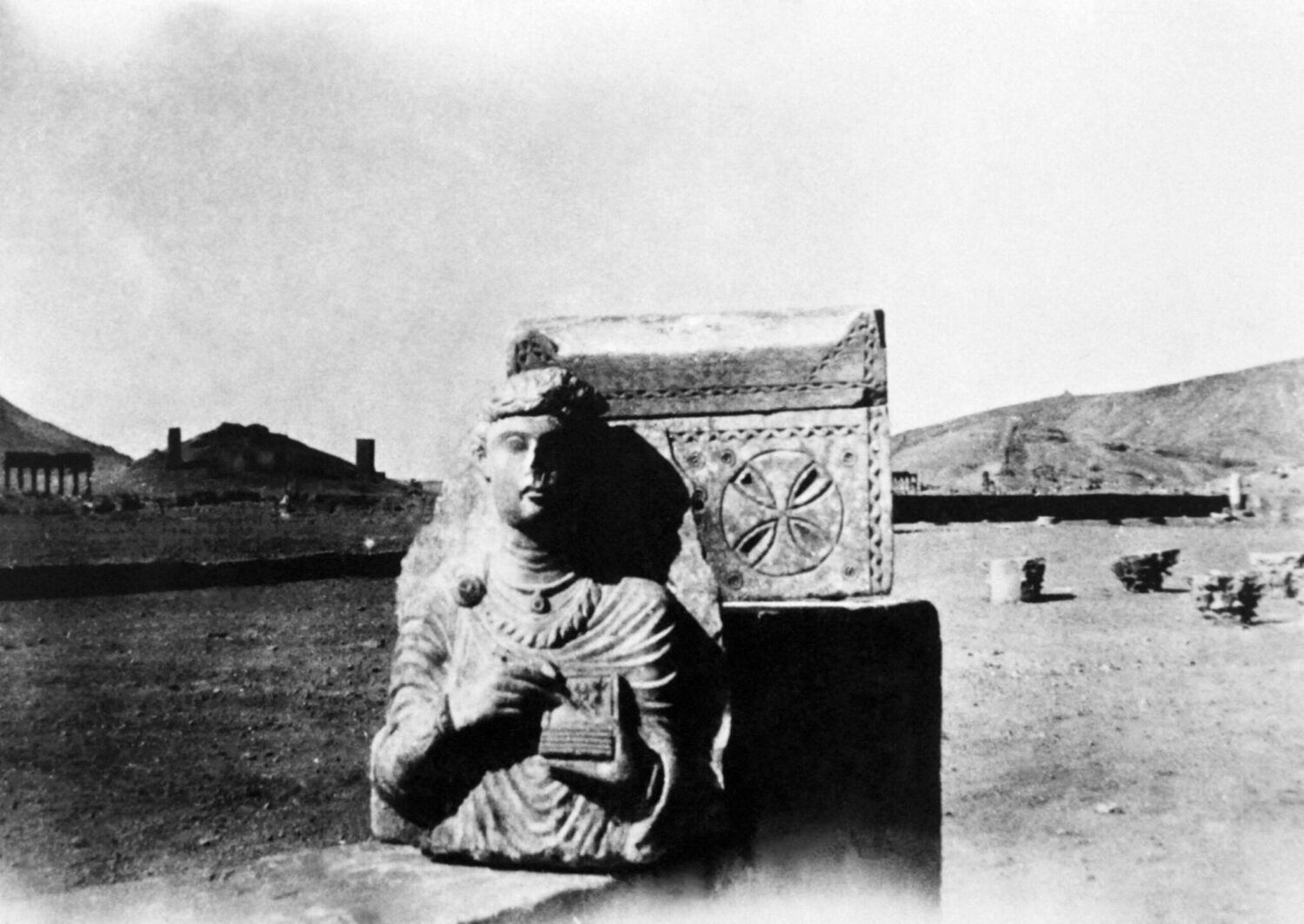
Introduction
From the 16th until the end of the 13th century BCE the city of Ugarit (Ras Shamra) on the coast was the most important harbor of the Levant, trading with Egypt, Greece, Anatolia, and Mesopotamia. Archaeologists have excavated remains of palaces, domestic complexes, temples and shrines, and – most importantly – libraries. Ugarit was sacked around 1200 BCE, probably by the infamous Sea Peoples, of whom not much is known.
During the Iron Age (circa 1200-600 BCE) the region was divided into several kingdoms, with their capitals at Damascus, Hama, and Aleppo. Most famous was the temple of the weather god Hadad in Aleppo, to whom even the mighty Assyrian kings paid hommage.
Assyrians, Babylonians, and Persians
The Assyrian empire stretched from Mesopotamia to Armenia and at times held sway over parts of northern Syria. Eventually, the Assyrians managed to extend their empire to the west.
In 612 BCE, Assyria’s capital Nineveh fell and the Assyrian empire succumbed to the Babylonians. For more than half a century, Syria was under the rule of Babylon, until another and greater power, the Achaemenids (Persians), took over (538 BCE).
Hellenistic Rule
When the Macedonian Alexander the Great conquered the region in the 4th century BCE, the Levant came under Hellenistic rule. Alexander went on to conquer Egypt and the Persian Empire, but he died within a decade of his conquests. After his death (323 BCE), his empire was divided among his three generals. Antigonos became the ruler of Greece, Egypt went to Ptolemy, and Seleukos (or Seleucus) received the eastern part of the empire, from Asia Minor to the eastern border, more or less coinciding with present-day Iran’s border with Afghanistan.
Seleukos built Antioch and made this the capital of the Seleucid Empire. Syria was partitioned between the Seleucids and the Ptolemaians, until it befell entirely to the Seleucids around 200 BCE and subsequently disintegrated as a result of incessant wars.
Roman Empire
In 64 BCE, Pompey turned Syria into a Roman province. Periods of prosperity and peace alternated with periods of anarchy and (civil) war. The Roman Empire was regularly attacked, both by the Parthians and Sassanid (Persians) on its south-eastern flank and by Germanic-speaking bands of warriors (Goths) and Vandals in the north and north-east. In addition to these attacks, the Roman Empire was at times weakened by internal power struggles.
In the flourishing trade city of Palmyra, located in the Syrian desert, Queen Zenobia took advantage of this weakness and declared herself independent of the Romans around 270. She built her own empire, stretching from Egypt to Ankara, and called herself empress (Augusta).
From the first century CE, the Christian religion spread along the Mediterranean coasts and beyond. The Levant was among the very first regions to be Christianized. At first, the Christians in the Roman Empire were either ignored or tolerated; then they were persecuted, and eventually recognized.
The persecutions were at their height during the reign of Diocletian (284-305). His successor, Constantine (305-337), converted to Christianity. With him came a new, more stable era. Under his predecessor, the Roman Empire had been divided into a Western and an Eastern Empire. Constantine, head of the Eastern Empire, which was by far the more powerful and economically successful, moved its capital to Constantinople, which allowed him to be closer to its enemy, the Sassanids (Persians).
Constantine thus laid the foundations of what would later be called the Byzantine Empire, consolidated by Justinian I (527-565). Justinian reunited the two empires and temporarily submitted the Goths and Vandals in the provinces (Italy, Spain, North Africa) they had occupied. On the eastern frontier, he waged war against the Persians – eventually with success.

